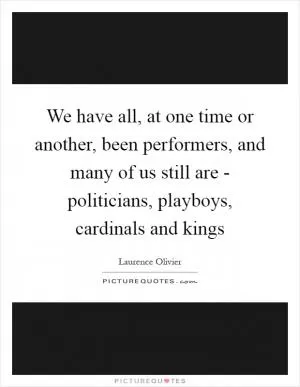When you're a young man, macbeth is a character part. When you're older, it's a straight part

When you're a young man, macbeth is a character part. When you're older, it's a straight part
Laurence Olivier, one of the greatest actors of the 20th century, is often associated with his iconic portrayal of Shakespeare's tragic character, Macbeth. Olivier's interpretation of the Scottish nobleman has been praised for its depth, complexity, and emotional intensity. However, what is particularly interesting about Olivier's portrayal of Macbeth is how it evolved over the course of his career.In his youth, Olivier often played Macbeth as a character part, focusing on the psychological and emotional aspects of the role. He brought a raw intensity and passion to the character, portraying Macbeth as a man driven by ambition and consumed by guilt. Olivier's performances in the role were often marked by a sense of youthful energy and vigor, as he threw himself into the physical and emotional demands of the character.
As Olivier grew older, his interpretation of Macbeth began to shift. No longer content to simply play the character as a psychological study, Olivier began to approach the role as a straight part, focusing more on the text and the language of the play. He brought a new level of maturity and gravitas to the character, emphasizing the moral and ethical dilemmas that Macbeth faces throughout the play. Olivier's later performances as Macbeth were marked by a sense of wisdom and experience, as he delved deeper into the complexities of the character and the themes of the play.
Olivier's evolution as a performer and his changing approach to the character of Macbeth reflect his growth as an actor and his deepening understanding of Shakespeare's work. By playing Macbeth as both a character part and a straight part, Olivier was able to explore the full range of the character's emotions and motivations, creating a nuanced and multi-dimensional portrayal that has stood the test of time.












 Friendship Quotes
Friendship Quotes Love Quotes
Love Quotes Life Quotes
Life Quotes Funny Quotes
Funny Quotes Motivational Quotes
Motivational Quotes Inspirational Quotes
Inspirational Quotes